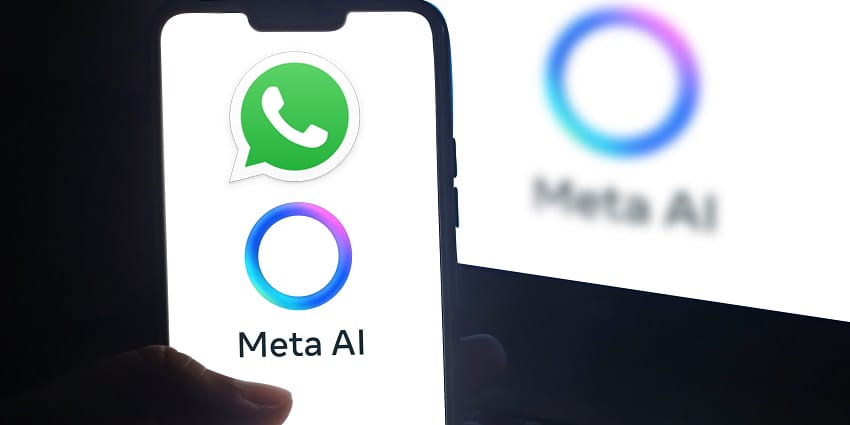Meta's messaging giant WhatsApp is harvesting all that AI data gathering, and transforming its business model, introducing advertisements to its platform after years of promising never to do so. The silent rollout of ads marks a major historical moment for the world's most popular messaging app, a return to the watering hole from which it was banished after the Cambridge Analytica scandal. The Trump administration has essentially greenlit this sort of profiteering by tech giants. The radical change will show AI powered market-retention techniques and their effectiveness across its currently 3 billion users experience daily communication.
The End of an Ad-Free Era
WhatsApp had long prided itself on being an ad-free sanctuary in the social media landscape. Founded in 2009 with the motto "No Ads! No Games! No Gimmicks!", the platform built its reputation on providing a clean, distraction-free messaging experience. This philosophy helped WhatsApp amass an enormous global user base, particularly in markets like India, Brazil, and Indonesia. At which point it was promptly bought out by Meta.
The shift represents a significant departure from WhatsApp's original vision. When Facebook (now Meta) acquired WhatsApp for $19 billion in 2014, co-founders Jan Koum and Brian Acton assured users that the platform would remain ad-free. However, both founders have since left the company, citing disagreements over data privacy and monetization strategies. As billionaires, it is worth noting.
How WhatsApp Ads Will Work
According to Meta reports, WhatsApp is implementing a 'measured approach' to advertising integration. The ads won't appear in personal chats or group conversations—at least not initially. Instead, they're being introduced in two key areas:
Status Updates: Similar to Instagram Stories, WhatsApp Status allows users to share temporary updates with their contacts. Ads will appear between these status updates, following the successful model already implemented on Instagram and Facebook.
Business Conversations: Companies using WhatsApp Business API may soon have options to promote their services more prominently within the app's business discovery features.
Meta has emphasized that the rollout will be 'gradual', likely testing in select markets before global expansion. This cautious approach suggests the company is preparing for user backlash and wants to prepare.
Privacy Implications and User Concerns
The introduction of ads raises immediate questions about data privacy—a cornerstone of WhatsApp's appeal. The key reason for it's current popularity was the freedom from ads and data-harvesting, and with Meta openly promoting data harvesting, and now ads, aside from the personal networks contained therein, it's hard to see a viable value usecase going forward.
The platform's end-to-end encryption had made it a preferred choice for privacy-conscious users worldwide. Meta has stated that personal messages will remain encrypted and that ad targeting won't be based on message content. This of course leaves open, geography, timing, meta data, age, frequency, estimates of bandwidth, external link invocations, etc etc, the list goes on and on including:
- Phone numbers linked to Facebook accounts
- Device information and usage patterns
- Interaction with business accounts
- Status viewing behavior
Privacy advocates worry this could be the first step toward more invasive advertising practices. The Electronic Frontier Foundation has already expressed concerns about how ad introduction might compromise WhatsApp's privacy standards over time.
What This Means for Users
For WhatsApp's massive user base, the changes will likely be subtle at first. Users in test markets may notice:
- Sponsored content appearing between Status updates
- More prominent business account suggestions
- Potential new features designed to support ad infrastructure
The impact on user experience will largely depend on ad frequency and relevance. Meta's success with Instagram advertising suggests they understand the importance of maintaining user engagement while monetizing the platform.
The Business Perspective
From Meta's standpoint, monetizing WhatsApp is a logical business decision. Despite its enormous user base, WhatsApp has contributed minimally to Meta's revenue compared to Facebook and Instagram. With Apple's iOS privacy changes impacting ad targeting capabilities and TikTok capturing younger audiences, diversifying revenue streams becomes crucial.
Industry analysts estimate that WhatsApp advertising could generate billions in additional revenue for Meta. The WhatsApp Business platform already serves over 200 million businesses monthly, indicating strong commercial potential.
Looking Ahead
The gradual introduction of ads to WhatsApp represents more than just a new revenue stream—it's a test of user loyalty and Meta's ability to balance monetization with user experience. As the rollout progresses, users will vote with their feet, either accepting the changes or seeking alternative platforms.
For now, WhatsApp remains the dominant global messaging platform. Whether it maintains this position while introducing advertising will depend on how skillfully Meta manages this transition. Users should stay informed about privacy settings and be prepared for a gradually changing WhatsApp experience in the months ahead.
The ad-free messaging era may be ending, but the full implications of this shift are just beginning to unfold.
Target Audience: Tech-savvy consumers, digital marketers, privacy advocates, business owners using WhatsApp Business, social media managers, and general WhatsApp users concerned about platform changes
